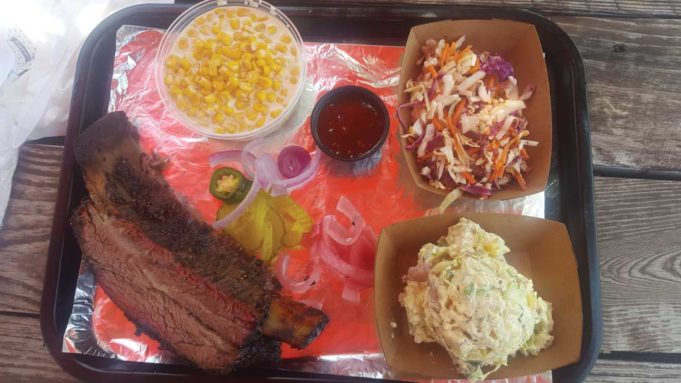Y’all know that Texas has a messed up relationship with food, right? It’s the kind of coupling that reminds me of people who are ever demanding of each other’s attention and praise and never fully secure to just be together. That’s how Texans are, with their gloriously oversized portions to the obsession with meat (beef mainly) to brunch as a pillar of weekend socials and the constant conversations about the best this, that, and the other kind of restaurant. Texans’ love for all things food is bested only by the weather thing. If you don’t like this restaurant, stick around, ’cos another four will be along soon.
There are hundreds of TV shows that feature food as entertainment. Some of them are listed as “educational,” typically featuring a matronly woman in a domestic setting. She is well put together but most assuredly does not cross the line to sexy or attractive. She is certainly no threat to Padma, Giada, Cat, or Nigella. Her dishes and her producers encourage you to see her as your mom’s younger self or the unthreatening friend who can whip up a restaurant-quality meal in minutes without disturbing her hair and makeup or spilling anything on her not-too-expensive-but-classy-all-the-same outfit. These shows are willfully anachronistic, pitching women as homemakers who could wish for no greater acclaim than the approbation of their man. Food Network’s Pioneer Woman is the time-warped apotheosis of this genre.
A dude-led element of the food shows features those loud, super-enthusiastic, voracious presenters –– think: Guy Fieri and Adam Richman –– who eat their way around the country on our behalf. Diners, Drive-Ins and Dives, helmed by the self-consciously wacky aforementioned Fieri, is the leader of this pack, and a fine show it is, in some ways. Indeed, the producers have had the good sense to send the bleach-headed one to the Fort to scope out the original Fred’s Texas Cafe on Currie Street along with a diverse bunch of Arlington eateries.
One could argue that these shows are benign entertainment, save for their utterly two-dimensional gender stereotyping. However, a foul stench, a fetid self-fellating redundancy wafts from the kitchens of the competition cooking shows. Those pieces of First World self-indulgence are near ubiquitous with their formulaic food Jeopardy! nonsense. How up yourself do you have to be to go on one of these shows? The basic setup is this: Several amateur cooks are given a less-than-required-to-succeed amount of time to cook a meal for a panel of “food experts.” You just have to trust the show that these guys are experts, ’cos they show no more food-critiquing chops on camera than the average fussy tweenager. Contestants are given a basket of ingredients that would indicate a late-stage Alzheimer’s patient has done the grocery shopping this week. Here a kohlrabi, there a shrimp, some beetroot, and – what’s this? – some Jolly Ranchers? Get fucked!
Meanwhile in the real world, people go hungry. Kids wake up, can’t brush their teeth, put on hand-me-downs, and go to school without breakfast. When the kids come home, the grown-ups in their lives often have to go hungry to feed their studious progeny. This happens every day and not just to people over there in Africa and all them other poor countries. People who look and talk like you (not me, ’cos I’m English, remember?) are served by food banks, because one in six people of all ages lives with food insecurity or hunger, and one in four kids is part of a family that is uncertain of where the next meal is coming from. That’s right here in Tarrant County. The startling stats come from the Tarrant Area Food Bank, which typically serves 50,000 people a week across 13 area counties. TAFB offers a range of community outreach programs from straight food banks to nutritional information and training.
Per its website, TAFB serves more than 140,000 households annually, three quarters of which live below the poverty line, which is an annual income of $25,520 or lower. Of the 167,000 people fed monthly, 35 percent are children. Recipients of all ages are served by at least one of the 270 partner agencies through a range of mobile pantries and direct feeding programs. These numbers are as alarming as they dispiriting, yet TAFB and its partners are out there doing this essential work. To give time to TAFB, go here –– tafb.org/volunteer – and I’ll see you there. To donate food, visit tafb.org/give-food. If you need food assistance, go here – tafb.org/find-food – or call TAFB at 817-857-7101. That’s if you can tear yourself away from the kohlrabi with the Jolly Rancher jus.











